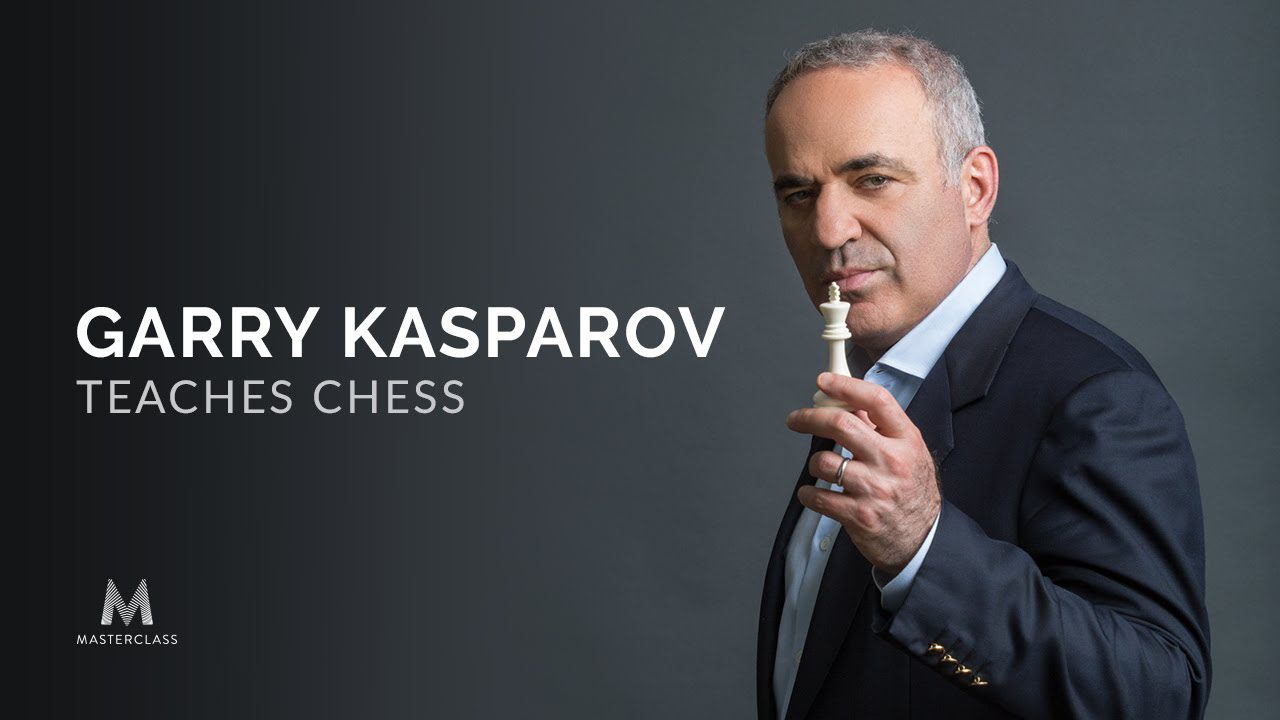Garry Kasparov, known by many as the greatest chess player of all time, became the under-18 chess champion of the USSR at the age of 12 and the World Junior Champion at 17. He then became the youngest World Chess Champion in history in 1985 at the age of 22. His 1984 World Championship match against Anatoly Karpov was controversially ended after 48 games with no clear victor. Kasparov clinched the rematch in 1985 and secured his place in chess history. He held on to the title of world’s highest-rated player until his retirement from professional chess in 2005.
His book Deep Thinking: Where Machine Intelligence Ends and Human Creativity Begins details his highly publicized matches against IBM supercomputer Deep Blue and his research on human and machine competition. While his rematch with Deep Blue ended in defeat, Kasparov believes these matches were key to bringing chess into the mainstream.
Garry didn’t become a Grandmaster overnight, but as a child he demonstrated a remarkable gift for the game of chess. He learned by watching his parents play and was soon challenging his uncle and solving chess problems in the newspaper, much to his family’s surprise.
Here are my favorite take aways from viewing the Garry Kasparov’s Masterclass Session on Chess.
Chess Fundamentals
- Chess has no universal strategy. Tactics abound, with opportunities and pitfalls for both players. A sharp position is one with a narrow path forward, often with just one move on each turn to avoid disaster. In contrast, quiet positions might have three or four reasonable moves and strategic maneuvering is paramount. Like everything in life, the game is about making decisions.
- While you may have limited knowledge of your opponent, you have unrestricted access to yourself and your own style of play. To begin, examine your instincts, and discover what type of game best suits your creativity. Practice pattern recognition by repeatedly reviewing common themes. Strong players use their experience to inform their tactical and strategic decisions.
- Don’t forget that chess is a two-player game. Your strategy may be undone by your opponent if you don’t disguise your true intentions and create multiple threats. Even if your opponent reacts to your main threat, it may give you the opportunity to make progress elsewhere.
Don’t forget that chess is a two-player game. Your strategy may be undone by your opponent if you don’t disguise your true intentions and create multiple threats.
Moves
- A double attack is when two targets in the enemy camp are attacked at the same time. This often happens when pieces are “loose” or undefended.
- An “absolute pin” is when the piece is pinned against the king, so it literally cannot move. Other pins are often called “relative pins,” since the piece can legally move.
Push and Pull
- There’s a push and pull in chess, which can be figurative or literal. Sometimes you need to use chess magnetism and induce a piece to move to a square that it might not want to occupy.
Overload
- When one piece has two jobs, like defending two pieces, it is “overloaded” with too much work. Often to take advantage of this, you need to choose the right move order. If possible, force the overloaded piece to abandon one of its responsibilities.
Winning Trades
- Trading pieces doesn’t mean simply swapping pieces of equal value. Exchanging pieces almost always favors one side or the other. Especially in the endgame, exchanging pieces can create a decisive advantage—or saving a game that appears hopeless.
Tablebases
- Chess computers employ massive databases of endgame positions called Tablebases. First used in 1977, endgame tablebases have kept expanding to include every possible position with seven total pieces on the board. Seven-piece tablebases require around 140 terabytes of storage!
Openings
- Chess borrows the terms “tempo” and it’s plural “tempi” from music to define the concept of a “beat” in time on the board (not time on the clock). That is, the number of moves, or tempi, required to achieve a goal, or get a piece or pawn to a certain square.
Persistent self-improvement
- Analyzing your own games and finding your weaknesses is the best way to show yourself what exactly you need to work on to improve your game.
- Break down your games immediately after “checkmate.” If you lost, note your mistakes and own up to them. If you won, it’s still more than likely you erred along the way. Don’t fall into what Garry calls the “gravity of your past success” trap; treat your victories as you would your losses, find your errors and consider the flawed decision-making process that produced them, and work on those areas in your next study session.
Computers and Chess
- Garry believes that the newest generation of chess enthusiasts are at risk of diminishing their creative thinking abilities since they are often content to accept the machine’s recommendations blindly, without reviewing them with a coach or even their own brains. You have to turn off the chess engine sometimes to exercise your mind. After all, unless you’re cheating you won’t have any silicon assistance during your games!
Recommended Books
- Bullet Chess: One Minute to Mate by Hikaru Nakamura
- 200 Open Games (Chess) by David Bronstein
- Garry Kasparov on Modern Chess, Part 1: Revolution In The 70’S (Everyman Chess) by Garry Kasparov
- Van Perlo’s Endgame Tactics: A Comprehensive Guide to the Sunny Side of Chess Endgames Kindle Edition by Ger van Perlo
- Fundamental Chess Endings by Frank Lamprecht and Karsten Müller
- Nunn’s Chess Endings by John Nunn
- Excelling at Positional Chess by Jacob Aagaard
Further Reading
- The 10 Most Important Moments In Chess History
- Why are the Russians so good at chess?
- How Chess Computers Work
About Masterclass
MasterClass is a streaming platform that makes it possible for anyone to learn from the very best. MasterClass is an online membership – accessible on your phone, web, Apple TV, Roku devices, and Amazon Fire TV – that offers classes on a wide variety of topics taught by 85+ world-class masters at the top of their fields.
Their immersive learning experiences combine incredible video content, downloadable materials, and social interaction with the MasterClass community, all of which users can explore at their own pace.
The annual membership is available for $180 USD, which allows unlimited access to ALL on demand MasterClass content for the year
Give One Annual Membership. Get One Free.
MasterClass Annual Membership for only $180 USD
All the best in your quest to get better. Don’t Settle: Live with Passion.
For More Information: MasterClass Home Page



Comments are closed.